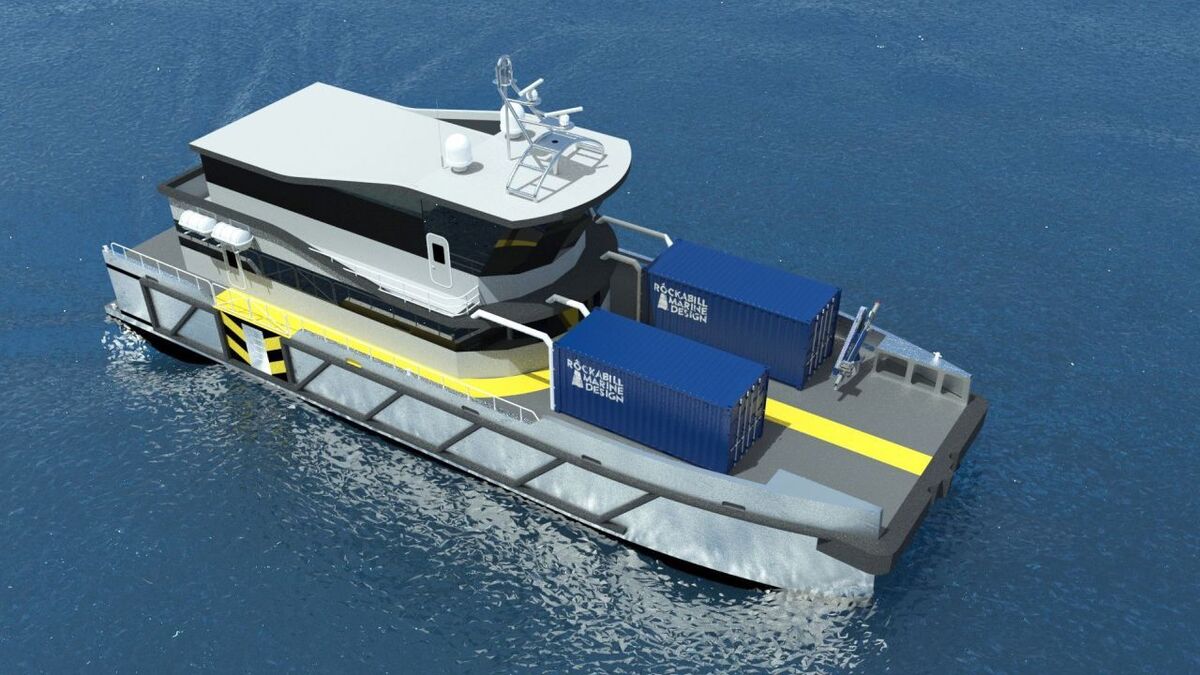Rockabill Marine Design (RMD), a newly established design house that is part of CSO Marine Group in the UK, has unveiled a ‘green’ crew transfer vessel (CTV) design
The Rockabill CTV harnesses the power of alternative fuel, using engines that can burn methanol in addition to conventional fuel types.
Using methanol produced from natural gas provides vessels with a reduction in NOx and SOx emissions and methanol from renewable sources is increasingly seen as a way to reduce greenhouse gas emissions from shipping.
Unlike some other alternative fuels, methanol has been shipped around the world for decades and is available globally thanks to existing infrastructure in more than 100 ports. This means there is no difficulty buying methanol with which to bunker vessels. The process of bunkering methanol is similar to distillate fuel, so only a few modifications to existing bunkering infrastructure is required.
Developed to meet the growing and evolving needs of the offshore renewables sector and increased focus on emissions reduction worldwide, the 32-m vessel was designed to be fuel-efficient and provide a high level of comfort for both passengers and crew. It can accommodate 30 windfarm technicians.
The new design uses a hybrid propulsion system running high-speed quad pod drives, with the diesel generators located in the hull compartment. Each generator has the capability to be converted to run on methanol with minimal downtime.
Rockabill Marine Design managing director Ruairi Grimes said, “Our CTV is the result of many years’ experience in the offshore industry and an understanding of operators’ and charterers’ ‘must-haves,’ while avoiding the pitfalls many other designers have encountered when trialling emissions reduction technology.”
The vessel has a generous foredeck accommodating four 10-ft or two 20-ft containers, a deck crane, anchor winch, fuel and high-pressure water supply reels.






